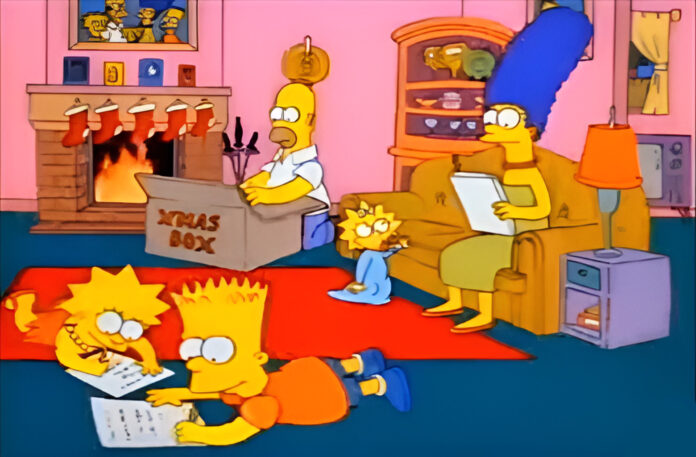On December 17, 1989, “The Simpsons” made its debut as a full-fledged series on the Fox network. What began as a series of crude animated shorts on The Tracey Ullman Show exploded into a cultural juggernaut, forever changing TV comedy, pop culture, and the way we look at donuts. (Or is it doughnuts? Eh, Homer would eat both.)
Little did we know that yellow-skinned, four-fingered caricatures of suburban dysfunction would become America’s most beloved family—and stay that way for more than three decades. Move over, Ozzie and Harriet; here comes Homer choking Bart while Marge groans and Lisa solves the universe’s problems.
How It All Began
Created by cartoonist Matt Groening, The Simpsons began as a last-minute idea. Groening, fearing he’d lose rights to his comic strip Life in Hell, hastily sketched a family of misfits: an oafish dad, a weary but loving mom, and three kids—an underachiever, a genius, and a pacifier-addicted baby. (Don’t feel bad, Maggie; at least you don’t have to pay bills.)
With producer James L. Brooks and animator Sam Simon, Groening brought his chaotic vision to life. On December 17, 1989, The Simpsons aired its first standalone episode, “Simpsons Roasting on an Open Fire,” a Christmas special where Homer fails to get a Christmas bonus and saves the day by adopting a greyhound, Santa’s Little Helper. Heartwarming chaos ensued, and television was never the same.
What Made The Simpsons Revolutionary?
- Relatable Dysfunction:
Unlike sitcom families that pretended life was all hugs and matching sweaters, the Simpsons were delightfully imperfect. From Homer’s laziness to Bart’s prankster streak, they showed that being flawed was part of the fun. (Also, it was nice to see a dad on TV who liked donuts as much as we do.) - Sharp Satire:
The show skewered everything: politics, religion, pop culture, and even Fox itself. Remember when Bart said, “It’s a lousy network”? That was Season 2, and we’re still not sure if Rupert Murdoch was laughing. - Endless Catchphrases:
“D’oh!” “Eat my shorts!” “Don’t have a cow, man!” The Simpsons gave us a vocabulary for life’s little irritations. Admit it: you’ve said “D’oh” while dropping something, even if you weren’t trying to be funny. - Cameos and Cultural Impact:
Everyone from Michael Jackson to Stephen Hawking showed up in Springfield, proving that it’s the center of the universe. Hawking even called it “the smartest show on TV,” though he probably wasn’t talking about Homer.
A Legacy Worthy of a Kwik-E-Mart
Since that December night in 1989, The Simpsons has become the longest-running primetime scripted series in history. With over 700 episodes and counting, the show has earned countless awards, inspired memes galore, and predicted world events with eerie accuracy. (Yes, they called President Trump, smartwatches, and three-eyed fish.)
The series influenced animated shows like Family Guy, South Park, and Rick and Morty. And even though some fans argue that its golden age is in the past, The Simpsons remains a cultural touchstone—a fact as immutable as Homer’s love for Duff Beer.
A Toast (and a Donut) to the Simpsons
Thirty-five years after it premiered, The Simpsons continues to make us laugh, groan, and occasionally feel smarter than we are. So, raise your Duff, hug your couch, and remember: Springfield may not exist on a map, but it lives rent-free in all our minds.




